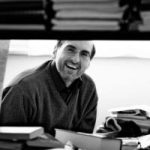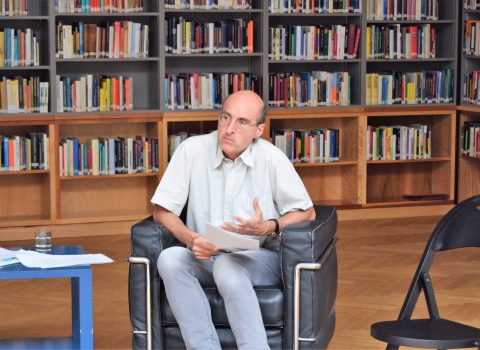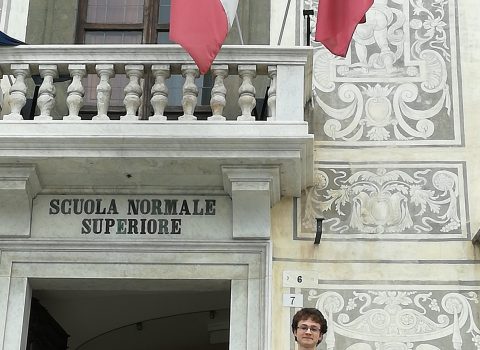The musical frontiers of research
FBK and the Conservatory of Trento strategic partners in knowledge production and dissemination
The link between music and research seems one of the most natural associations that can exist.
Music, after all, is a language at once natural and difficult. Sounds, songs, melodies are undoubtedly part of our daily life, but the moment they become art they reveal aspects, potentials, enigmas, false bottoms, which offer themselves to human curiosity as possible chapters of a scientific and technical knowledge without fixed limits.
I’ll try to show my point.
Music has to do with one specific sense organ – hearing – but it has the mysterious ability to stimulate all of them imaginatively. And not only the external senses, but also internal ones. Music moves, exalts, makes sad, bewilders. It can appear beautiful, ugly, dull, profound, harmonious, unpleasant. And each of these “atmosphere” adjectives conceals a question that places the ear in direct connection with the most sophisticated and creative parts of the human mind.
Precisely because it is a language at once akin to and different from verbal language, music thus poses endless interpretation problems. On the one hand, composed and notated music itself claims an interpretation, namely, a performance in a given time and place (and, as such, unrepeatable). On the other hand, this performance is itself, strictly speaking, susceptible to linguistic interpretation, the purpose of which is to articulate its hidden meaning or meanings. What is it that that specific sequence of chords or that warble imitating the chirping of a bird or that syncopated rhythm or that long interminable pause are meant to “say”? And what special meaning should we attribute to the use of the human voice alongside other musical instruments?
Sounds, moreover, have their own specific and enigmatic materiality. In particular, the fact that they can be produced or reproduced with instruments that human technical skill makes increasingly sophisticated over time or so innovative that they were for a long time even inconceivable is proof of the existence of an systematic link between music and technology. Not only that. Musical agentivity and passivity itself – the creation, performance and enjoyment of music-are processes that can be not only replicated or simulated by machines, but also broken down and recombined, radically altering the contexts within which music is produced and shared.
Music, in short, is all-around art. And it is, ultimately, also research in the broadest, least specialized sense of the term, for it has always played a key role in the human hunt for the “meaning of meanings” of existence, its point, its purpose. Music has been and still is the focus of religious and secular public rituals, of individual spiritual quests, of the practices of youth subcultures, of the festive and mournful dimensions of life. Music, like religion, “est partout.”
No need to go any further.
The interweaving of music and research lies, so to speak, in things themselves. However, it is not transparent, it is not self-interpreting, its meaning is not there en plein air waiting to be distilled and stored somewhere. It must be thoroughly investigated. This is why Fondazione Bruno Kessler and the F.A. Bonporti Conservatory of Trento recently signed an agreement in which they mutually committed to consolidate “a collaborative relationship aimed at the identification, development and activation of specific projects and/or activities of common interest” in the areas of research and communication.
On the other hand, FBK is an institution that has research and cultural and technological innovation as its mission. The Conservatory, in turn, is a higher education institution that aims at making the intrinsic link between music and research one of its founding missions. In order to understand how these two organizations can intertwine their vocations and in what contexts they can make their cognitive efforts converge and become synergistic, the Center for Religious Studies has organized a study seminar to be held on Nov. 21 in the Aula piccola Hallof the Humanities Hub (via S. Croce, 77 – Trento) from 3 p.m. to 6 p.m. After an introduction by Massimo Leone and Paolo Costa, director and senior researcher of the Center, respectively, Margherita Anselmi (Conservatorio F.A. Bonporti), Federica Fortunato (Conservatorio F.A. Bonporti), Pier Alberto Porceddu Cilione (University of Verona) and some students from the project-network “Oi Dialogoi” will speak with brief communications. Ample space will finally be reserved for discussion to which the entire FBK community is invited to contribute.
This will be a nice first opportunity to explore the musical frontiers of research by following known and lesser-known routes.



